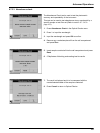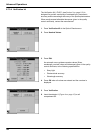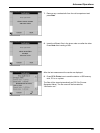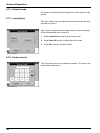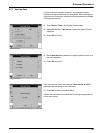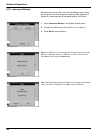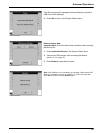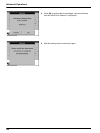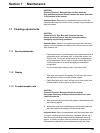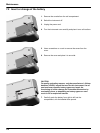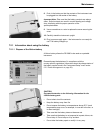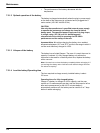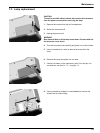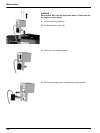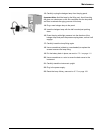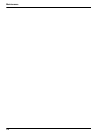
109
Section 7 Maintenance
CAUTION
Potential Chemical, Biological Eye and Skin Hazards.
Only qualified personnel should conduct the tasks described
in this section of the manual.
Important Note: Remove any cuvettes/cells that are still in the
instrument and dispose of them or their contents using an approved
disposal method.
7.1 Cleaning requirements
CAUTION
Potential Pinch, Eye, Burn and Chemical Hazards.
Always disconnect power from the instrument before
attempting any cleaning operations.
Important Note: Under no circumstances should the instrument,
display or the accessories be cleaned with solvents such as white
spirit, acetone, etc.
7.1.1 Spectrophotometer
• Clean the enclosure, cuvette/sample cell compartments and all
accessories with a soft damp cloth. A mild soap solution can
also be used. Do not get excess water in the cuvette/sample
cell compartments. Do not insert a brush or sharp object into
Cell Compartment #1 to avoid damaging the mechanical
components.
• Dry the cleaned parts carefully with a soft cotton cloth.
7.1.2 Display
• Take care not to scratch the display. Do not touch the screen
with ball pens, pencils or similar pointed objects.
• Clean the display with a soft, lint-free and oil-free cotton cloth.
Diluted window cleaner liquid can also be used.
7.1.3 Cuvettes/sample cells
CAUTION
Potential Chemical/ Biological Exposure Hazards.
Use proper laboratory practices whenever there is a risk of
chemical exposure.
1. After performing a procedure, clean glass cuvettes/sample cells
with cleaning agents.
2. Afterwards, rinse the cuvettes/sample cells several times with
tap water and then thoroughly with deionized water.
Important Note: Glass cuvettes/sample cells that have been used
for organic solvents (such as chloroform, benzene, toluene, etc.)
must be rinsed with acetone before being treated with cleaning
agents. In addition, another rinse with acetone is necessary as a
final treatment step before the cuvettes/sample cells are dried.



